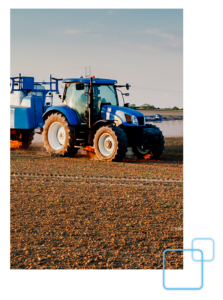Introduction to Farm Fuel Delivery
Modern farming is built on efficiency, and fuel plays a central role in making that possible. Tractors, harvesters, irrigation pumps, and transport vehicles all depend on a reliable energy supply to function without disruption. Farm fuel delivery has emerged as a practical solution, ensuring farmers receive fuel directly at their location. Instead of spending valuable time traveling to fuel stations, farmers can focus on critical tasks while suppliers handle energy needs. This approach not only saves time but also improves productivity, making fuel delivery a cornerstone of modern agriculture.

How Farm Fuel Delivery Works
The process of farm fuel delivery is straightforward yet highly efficient. Specialized suppliers use delivery trucks equipped with pumps, meters, and safety systems to transport large volumes of diesel, gasoline, or heating oil directly to farms. Fuel is either transferred into on-site storage tanks or dispensed directly into machinery. Many suppliers offer scheduling flexibility, allowing farmers to order fuel when required or set up regular deliveries. With advancements in technology, farmers can now place orders online, track consumption, and receive automated reminders, ensuring they never run short during peak seasons.
Importance of Reliable Fuel Access
Agriculture is a time-sensitive industry where timing directly impacts outcomes. Missing the optimal planting or harvesting window can result in reduced yields and financial loss. Reliable farm fuel delivery guarantees that essential machinery is always fueled and ready to work. Without this service, farmers risk downtime, wasted labor, and delays that could disrupt their entire operation. By keeping fuel supplies consistent and dependable, delivery services safeguard productivity and provide peace of mind during critical agricultural cycles.
Types of Fuel Delivered to Farms
Different farms have different requirements, and fuel delivery services are designed to meet these diverse needs. Diesel is the most commonly delivered fuel, used in heavy machinery like tractors and harvesters. Gasoline is supplied for lighter engines and farm vehicles. Heating oil and kerosene are often required for storage facilities, equipment, or workshops. Many suppliers are also expanding into renewable options such as Hydrotreated Vegetable Oil (HVO) and biodiesel, giving farmers eco-friendly choices that reduce emissions while maintaining performance. Access to multiple fuel types from one source simplifies management for busy farms.
Advantages of Farm Fuel Delivery
Farm fuel delivery offers several advantages that extend beyond simple convenience. Bulk deliveries often come at lower prices compared to retail fuel, reducing costs significantly. By cutting out unnecessary trips to fueling stations, farmers save time, minimize vehicle wear, and reduce labor costs. Delivery services also provide flexibility, offering scheduled or emergency deliveries tailored to a farm’s operations. Some suppliers add value with transparent reporting, fuel monitoring, and consumption analysis, helping farmers plan budgets and manage resources more effectively. These combined benefits make fuel delivery an investment in both efficiency and savings.
Enhancing Productivity on Farms
Farm fuel delivery plays a direct role in improving overall farm productivity. Agricultural machinery often operates for long hours during planting and harvesting, where even minor interruptions can lead to delays. If a combine harvester stops mid-field due to an empty tank, valuable time and effort are lost. On-site fueling prevents such setbacks by ensuring equipment is always ready to perform. This steady availability of energy minimizes downtime, optimizes labor use, and allows farms to meet seasonal deadlines more effectively. In short, farm fuel delivery keeps operations running smoothly when it matters most.
Safety and Environmental Standards
Handling fuel requires strict attention to safety, and professional delivery services are equipped to manage the risks. Suppliers follow rigorous safety guidelines when transporting and dispensing fuel, using certified equipment and trained personnel. This reduces the chance of accidents, leaks, or contamination. Farmers also receive guidance on tank installation, maintenance, and safe storage practices. With growing awareness of environmental responsibility, many suppliers are also adopting greener practices, offering low-emission fuels and spill-prevention measures. By prioritizing both safety and sustainability, fuel delivery supports responsible farming practices while protecting people and the environment.
Technology and Innovation in Fuel Delivery
Technology has revolutionized the way fuel delivery services operate. Many providers now use digital platforms that allow farmers to place orders, track deliveries, and monitor fuel usage in real time. Smart tank sensors can automatically notify suppliers when levels are low, ensuring timely refueling without manual checks. Additionally, renewable fuels like biodiesel and HVO are becoming widely available, aligning with the agricultural sector’s shift toward sustainable practices. As these innovations continue, farm fuel delivery will become even more efficient, eco-friendly, and adaptable to farmers’ evolving needs.
Choosing a Reliable Fuel Delivery Partner
Selecting the right delivery partner is key to maximizing the benefits of fuel delivery. Farmers should look for suppliers with proven reliability, competitive pricing, and flexibility in scheduling. Strong customer service and emergency response capabilities are also important considerations. Many providers offer added services such as fuel monitoring, tank maintenance, and quality assurance checks. By choosing a trusted partner, farmers not only secure their energy supply but also build a long-term relationship that supports the efficiency and resilience of their operations.
Conclusion
Farm fuel delivery has become an essential service for modern agriculture, providing farmers with the convenience, reliability, and efficiency needed to thrive. By reducing downtime, saving costs, and ensuring continuous operations, it supports the productivity of farms both large and small. Beyond meeting immediate needs, delivery services also enhance safety, encourage sustainability, and embrace technology-driven solutions. As farming continues to evolve, fuel delivery will remain a cornerstone of success, powering machinery and enabling farmers to focus on what they do best—feeding communities and sustaining growth.

